Clicking Our Heels – Challenges Being a Female Writer
Clicking Our Heels – Challenges Being a Female Writer
Sisters in Crime was founded when Sara Paretsky and other female mystery writers saw a lack of parity between male and female authors. A later advertising slogan claims: “You’ve Come a Long Way Baby.” But let’s look at reality. What has been one of your challenges in being a female mystery writer, and how have you dealt with it?
Donalee Moulton – Ironically, perhaps, the challenge I find we face as female mystery writers is convincing agents and publishers we are not all the same. As writers, we bring our own voice to the conversation and that voice is singular regardless of our gender, our age, our place of residence.
Mary Lee Ashford – One of the challenges with being a female mystery writer (and especially an older female) is that you are constantly dealing with assumptions. I have to say that I think it’s gotten better and organizations like Sisters in Crime have helped. But it’s often still a challenge to be taken seriously.
Anita Carter – Balancing the day job, family, marriage and writing. There are many times I feel pulled in all directions. I’m sure that’s not only indicative of female mystery writers, but probably just writers in general.
Debra Sennefelder – Honestly, I’ve dealt with challenges so many other authors have dealt with like getting an agent, getting an editor to fall in love with my book idea. I kept working hard. I don’t recall a situation where being a female was an added challenge to my pursuit of writing. Thanks to all those who have come before me for that.
Donnell Ann Bell – Because I’m a woman I have a tendency to put other people’s needs before my own. If I am to grow this career, I need to develop a bit of selfishness. Not rudeness or lack of consideration, you understand, but an ability to know my own limits and to realize I can’t help everybody as much as I want to.
Gay Yellen – When my first book was published, a few acquaintances confessed they wouldn’t be reading it because they were only interested in reading non-fiction or “literary” fiction. Their genre prejudice was a shock I soon got over. As for being female, I’m aware of the historic bias of mainstream publishers which made it difficult for women writers to achieve contract parity. Change is slow, but it’s happening, I hope. The antidote is to write the best book I can and, hopefully, earn validation that my work is worthy.
Debra H. Goldstein – Breaking out of being stereotyped in my work.
Lois Winston – Trust me, it was worse being a female romance author, especially when my husband’s male coworkers would ask how I research my sex scenes. (This occurred every year at the company holiday party after they’d downed one too many egg nogs!) Now I worry the FBI will come knocking because I’m researching different ways to kill people. I employed sarcasm to deal with the former, and I keep my fingers crossed to deal with the latter.
T.K. Thorne – Women writers in the genre struggle to get equal recognition, reviews, etc. as documented by groups like Sisters in Crime. When I started writing (several decades ago) I was keenly aware of this, and I think it fed into my decision to write under my initials (T.K).
Dru Ann Love – So far I have not experienced any challenges.
Bethany Maines – I think there are loads of female mystery writers and in general no one even blinks. I think it’s when the genre starts to skew more toward thriller or crime and away from cozy that readers might start to think “those are masculine!” But I think that the rise of indie publishing has sort of stomped down a lot of the genre/gender barriers. It’s one of the great benefits of indie publishing that I don’t think enough people are looking at.
Barbara J. Eikmeier – I’m still working full time so always my biggest challenge is carving out time. Not just for the writing but also the agent search, finding first readers and follow up on so many little things.
Saralyn Richard – Ironically, I detest violence of any sort and faint at the sight of blood, yet I love mysteries. Sometimes my characters put me in uncomfortable situations, and I have to write my way through.

 Good Monday morning. The Stiletto Gang is a group of authors that touch mostly on marketing, the craft of writing, the concept behind our books and/or the genre of what we’re writing. Last week, two of our authors didn’t just touch on a topic, they challenged it and downright addressed the world’s most serious problems.
Good Monday morning. The Stiletto Gang is a group of authors that touch mostly on marketing, the craft of writing, the concept behind our books and/or the genre of what we’re writing. Last week, two of our authors didn’t just touch on a topic, they challenged it and downright addressed the world’s most serious problems.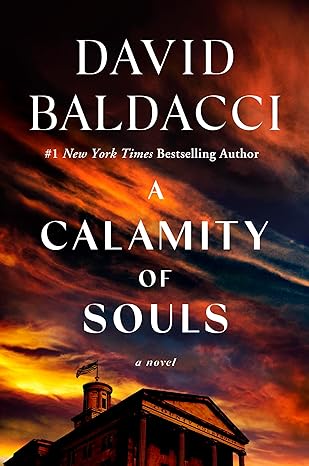 Set in the tumultuous year of 1968 in southern Virginia, a racially-charged murder case sets a duo of white and Black lawyers against a deeply unfair system as they work to defend their wrongfully-accused Black defendants in this courtroom drama from #1 New York Times bestselling author David Baldacci.
Set in the tumultuous year of 1968 in southern Virginia, a racially-charged murder case sets a duo of white and Black lawyers against a deeply unfair system as they work to defend their wrongfully-accused Black defendants in this courtroom drama from #1 New York Times bestselling author David Baldacci.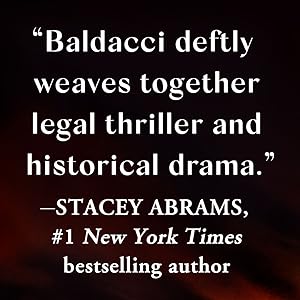
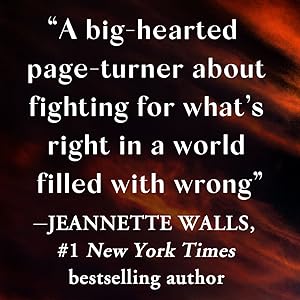
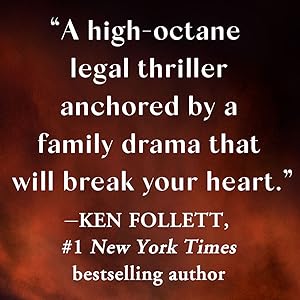
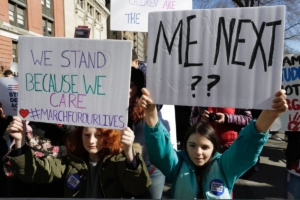 Existing While Brown or Black in America by Linda Rodriguez
Existing While Brown or Black in America by Linda Rodriguez